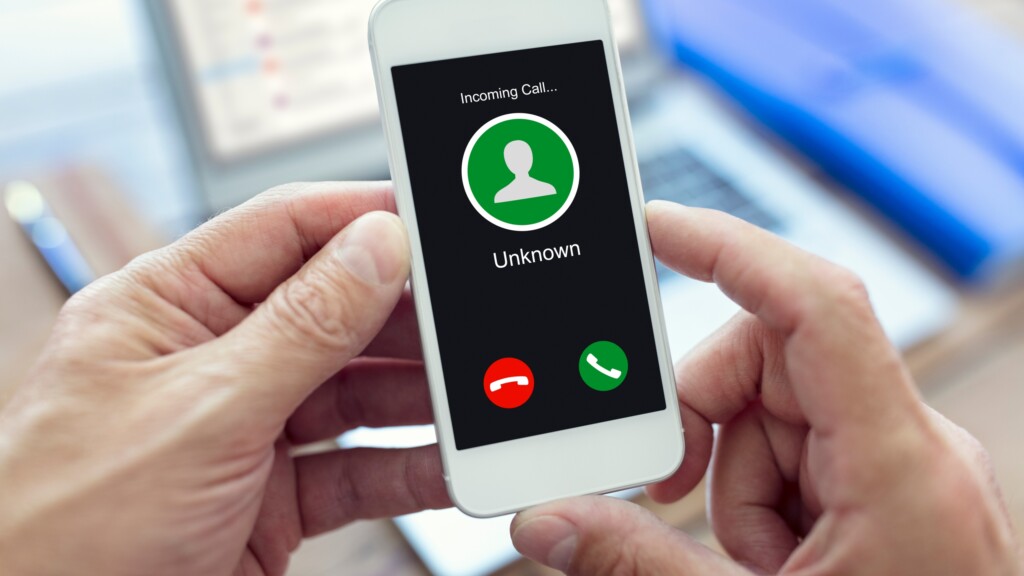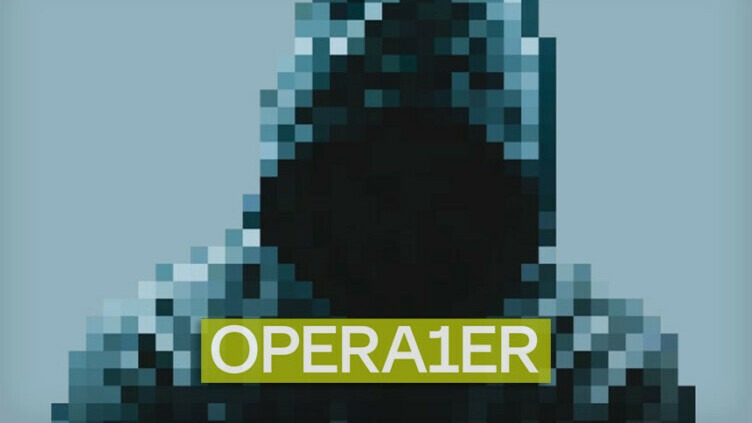Major Ivory Coast Scammer Kingpin of OPERA1er Group Arrested
By SCARS Editorial Team – Society of Citizens Against Relationship Scams Inc., portions from Interpol
Ivory Coast’s DITT Arrests A Senior “OPERA1er” Group Kingpin Linked To Cybercrime Around The World
An alleged senior member (kingpin) of the cybercriminal group “OPERA1er” linked to attacks on financial institutions across Africa, Latin America and Asia, has been arrested in Abidjan, Côte d’Ivoire. To achieve this arrest, Côte d’Ivoire’s Directorate of Informatics and Technological Traces (DITT) worked with INTERPOL Global Complex for Innovation (IGCI) Singapore, AFRIPOL, and Group-IB.
This is a significant blow to the criminal activities of the “OPERA1er” cartel
An alleged senior official of this OPERA1er cybercriminal organization, who allegedly stole about $11 million in more than 30 attacks in 15 countries in Africa, Latin America, and Asia, was arrested in early June 2023 in Abidjan as part of a joint operation by Côte d’Ivoire’s Directorate of Computer Science and Technological Traces (DITT). INTERPOL Global Complex for Innovation (IGCI) Singapore, AFRIPOL and Group-IB.
Announced by INTERPOL, this arrest of the OPERA1er senior is the result of several years of collaboration. It was Group-IB that first detected phishing attacks in 2018 that aimed to spread malware against financial institutions and mobile banking services. This information shared with INTERPOL was complemented by information from the U.S. Secret Service’s Criminal Investigations Division and cybersecurity researchers from Booz Allen Hamilton DarkLabs. All within the framework of an operation called “NERVONE” which made it possible to follow the actions of cybercriminals and lead to the present arrest.
The OPERA1er Arrest According to Interpol
Over the last four years, OPERA1er, a highly-organized criminal organization has targeted financial institutions and mobile banking services with malware, phishing campaigns and large-scale Business Email Compromise (BEC) scams.
Known as OPERA1ER, with aliases such as NX$M$, DESKTOP Group and Common Raven, the group is believed to have stolen an estimated USD 11 million – potentially as much as 30 million – in more than 30 attacks across 15 countries in Africa, Asia and Latin America.
A detailed overview of OPERA1ER’s methods was published by Group-IB and Orange S.A. in November 2022. Following extensive cooperation, INTERPOL, AFRIPOL, Group-IB and Côte d’Ivoire’s Direction de l’Information et des Traces Technologiques (DITT) are announcing the arrest of a suspected senior member of the group, dealing a significant blow to their criminal activities
While welcomed by INTERPOL’s Cybercrime Operations Directorate, this international cooperation demonstrates the power of Côte d’Ivoire’s Directorate of Informatics and Technological Traces (DITT), on which the Cybercrime Platform (PLCC) depends. For its contribution to the success of investigations and in the conduct of projects, DITT was honored in early June by INTERPOL at the inauguration of the premises of the Police Information Processing Centre (CTIP) in Côte d’Ivoire.
A month before this distinction, it was the General Directorate of the National Police in charge of the Judicial Police (DGACPJ) that expressed its gratitude to him, awarding him a trophy for all the support provided during the resolution of the OPERA1er cases.
Led by Colonel-Major Guelpétchin Ouattara, the DITT is on all fronts of cybersecurity. Digital Forensics Laboratory (LCN), networks, data centers, security operations center (SOC), artificial intelligence… Every effort is being made to secure Ivorian cyberspace and collaborate with international organizations engaged in the fight against cybercrime.
OPERA1er Arrest – How it was Done!
The OPERA1er group’s illicit e-mail campaigns were first detected by Group-IB in 2018 when they recognized spear phishing operations responsible for spreading malware such as remote access tools.
Under the auspices of Operation Nervone, INTERPOL’s Cybercrime Directorate, Group-IB, and third-party stakeholder Orange exchanged intelligence about OPERA1er which helped track the group’s behaviors and identify a probable location for their activities.
Additional information was provided by the United States Secret Service’s Criminal Investigative Division and Booz Allen Hamilton DarkLabs cybersecurity researchers, confirming a number of leads.
In early June, authorities in Côte d’Ivoire (Ivory Coast) were able to arrest a key suspect with OPERA1er linked to attacks against financial institutions across Africa.
“Operation Nervone is a testament to what we can achieve through international collaboration and intelligence sharing. This successful operation marks a significant step in our ongoing mission to dismantle organized cybercrime networks, showcasing the power of collective action in stemming the tide against cybercrime.”
According to INTERPOL’s 2022 African Cyberthreat Assessment Report, cybercrime is a growing threat in the West Africa region, with victims located worldwide. Operation NERVONE underscores INTERPOL’s commitment to proactively combat the threat of cybercrime in the region with this operation against OPERA1er.
Operation Nervone was backed by two key INTERPOL initiatives: the African Joint Operation against Cybercrime and the INTERPOL Support Programme for the African Union in relation to AFRIPOL, funded by the United Kingdom’s Foreign, Commonwealth & Development Office and Germany’s Federal Foreign Office, respectively.
More:
Group-IB Webinar – How millions were stolen from banks” video_facade=”on” margin_top=”” margin_bottom=”” hide_on_mobile=”small-visibility,medium-visibility,large-visibility” class=”” css_id=”” structured_data=”off” video_upload_date=”” video_duration=”” video_title=”” video_desc=”” /]
More ScamsNOW.com Articles
-/ 30 /-
What do you think about this?
Please share your thoughts in a comment below!
SCARS LINKS: AgainstScams.org RomanceScamsNOW.com ContraEstafas.org ScammerPhotos.com Anyscam.com ScamsNOW.com
reporting.AgainstScams.org support.AgainstScams.org membership.AgainstScams.org donate.AgainstScams.org shop.AgainstScams.org
youtube.AgainstScams.org linkedin.AgainstScams.org facebook.AgainstScams.org
TABLE OF CONTENTS
CATEGORIES
![NavyLogo@4x-81[1] Major Ivory Coast Scammer Kingpin of OPERA1er Group Arrested](https://scamsnow.com/wp-content/uploads/2025/04/NavyLogo@4x-811.png)
ARTICLE META
Important Information for New Scam Victims
- Please visit www.ScamVictimsSupport.org – a SCARS Website for New Scam Victims & Sextortion Victims.
- SCARS Institute now offers its free, safe, and private Scam Survivor’s Support Community at www.SCARScommunity.org – this is not on a social media platform, it is our own safe & secure platform created by the SCARS Institute especially for scam victims & survivors.
- SCARS Institute now offers a free recovery learning program at www.SCARSeducation.org.
- Please visit www.ScamPsychology.org – to more fully understand the psychological concepts involved in scams and scam victim recovery.
If you are looking for local trauma counselors, please visit counseling.AgainstScams.org
If you need to speak with someone now, you can dial 988 or find phone numbers for crisis hotlines all around the world here: www.opencounseling.com/suicide-hotlines
Statement About Victim Blaming
Some of our articles discuss various aspects of victims. This is both about better understanding victims (the science of victimology) and their behaviors and psychology. This helps us to educate victims/survivors about why these crimes happened and not to blame themselves, better develop recovery programs, and help victims avoid scams in the future. At times, this may sound like blaming the victim, but it does not blame scam victims; we are simply explaining the hows and whys of the experience victims have.
These articles, about the Psychology of Scams or Victim Psychology – meaning that all humans have psychological or cognitive characteristics in common that can either be exploited or work against us – help us all to understand the unique challenges victims face before, during, and after scams, fraud, or cybercrimes. These sometimes talk about some of the vulnerabilities the scammers exploit. Victims rarely have control of them or are even aware of them, until something like a scam happens, and then they can learn how their mind works and how to overcome these mechanisms.
Articles like these help victims and others understand these processes and how to help prevent them from being exploited again or to help them recover more easily by understanding their post-scam behaviors. Learn more about the Psychology of Scams at www.ScamPsychology.org
SCARS INSTITUTE RESOURCES:
If You Have Been Victimized By A Scam Or Cybercrime
♦ If you are a victim of scams, go to www.ScamVictimsSupport.org for real knowledge and help
♦ SCARS Institute now offers its free, safe, and private Scam Survivor’s Support Community at www.SCARScommunity.org/register – this is not on a social media platform, it is our own safe & secure platform created by the SCARS Institute especially for scam victims & survivors.
♦ Enroll in SCARS Scam Survivor’s School now at www.SCARSeducation.org
♦ To report criminals, visit https://reporting.AgainstScams.org – we will NEVER give your data to money recovery companies like some do!
♦ Follow us and find our podcasts, webinars, and helpful videos on YouTube: https://www.youtube.com/@RomancescamsNowcom
♦ Learn about the Psychology of Scams at www.ScamPsychology.org
♦ Dig deeper into the reality of scams, fraud, and cybercrime at www.ScamsNOW.com and www.RomanceScamsNOW.com
♦ Scam Survivor’s Stories: www.ScamSurvivorStories.org
♦ For Scam Victim Advocates visit www.ScamVictimsAdvocates.org
♦ See more scammer photos on www.ScammerPhotos.com
You can also find the SCARS Institute’s knowledge and information on Facebook, Instagram, X, LinkedIn, and TruthSocial
Psychology Disclaimer:
All articles about psychology and the human brain on this website are for information & education only
The information provided in this and other SCARS articles are intended for educational and self-help purposes only and should not be construed as a substitute for professional therapy or counseling.
Note about Mindfulness: Mindfulness practices have the potential to create psychological distress for some individuals. Please consult a mental health professional or experienced meditation instructor for guidance should you encounter difficulties.
While any self-help techniques outlined herein may be beneficial for scam victims seeking to recover from their experience and move towards recovery, it is important to consult with a qualified mental health professional before initiating any course of action. Each individual’s experience and needs are unique, and what works for one person may not be suitable for another.
Additionally, any approach may not be appropriate for individuals with certain pre-existing mental health conditions or trauma histories. It is advisable to seek guidance from a licensed therapist or counselor who can provide personalized support, guidance, and treatment tailored to your specific needs.
If you are experiencing significant distress or emotional difficulties related to a scam or other traumatic event, please consult your doctor or mental health provider for appropriate care and support.
Also read our SCARS Institute Statement about Professional Care for Scam Victims – click here
If you are in crisis, feeling desperate, or in despair, please call 988 or your local crisis hotline – international numbers here.
More ScamsNOW.com Articles
A Question of Trust
At the SCARS Institute, we invite you to do your own research on the topics we speak about and publish. Our team investigates the subject being discussed, especially when it comes to understanding the scam victims-survivors’ experience. You can do Google searches, but in many cases, you will have to wade through scientific papers and studies. However, remember that biases and perspectives matter and influence the outcome. Regardless, we encourage you to explore these topics as thoroughly as you can for your own awareness.
























![scars-institute[1] Major Ivory Coast Scammer Kingpin of OPERA1er Group Arrested](https://scamsnow.com/wp-content/uploads/2025/04/scars-institute1.png)

![niprc1.png1_-150×1501-1[1] Major Ivory Coast Scammer Kingpin of OPERA1er Group Arrested](https://scamsnow.com/wp-content/uploads/2025/04/niprc1.png1_-150x1501-11.webp)